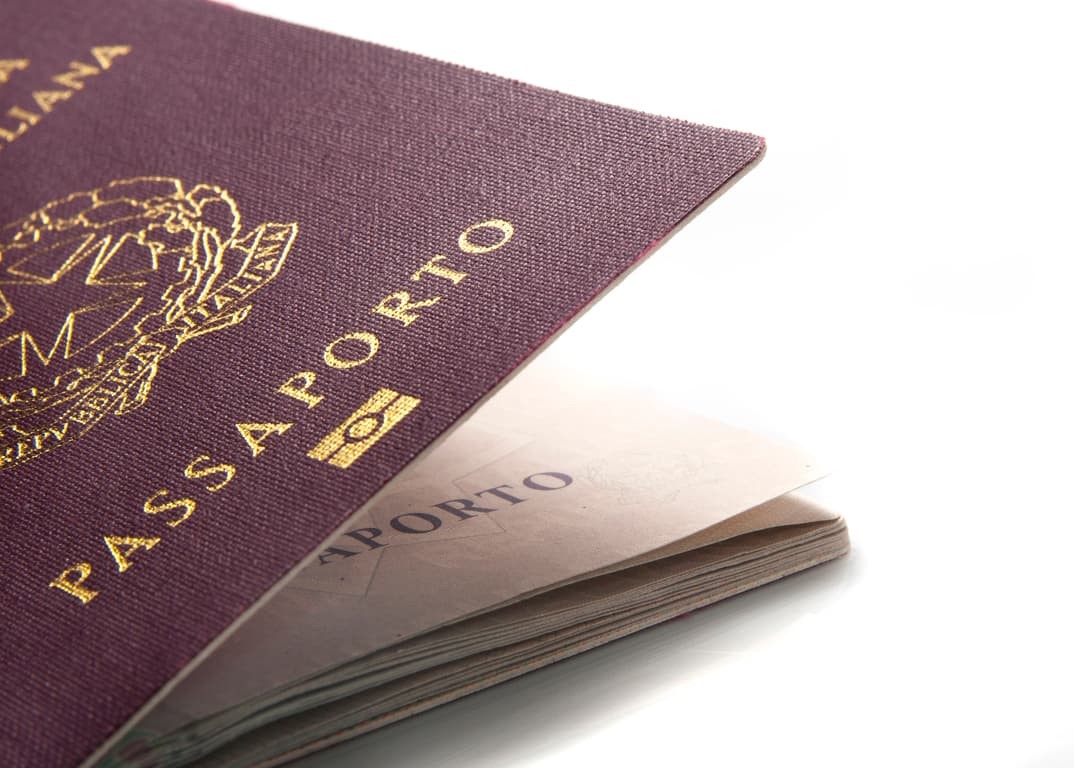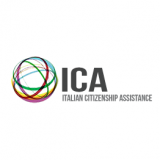
 Italian Citizenship Assistance
Italian Citizenship Assistance
ICA: Italian Citizenship by descent, speaking Italian is NOT required
- WTI Magazine #143 Sep 18, 2021
-

 Italian Citizenship Assistance
Italian Citizenship Assistance
Many people often ask themselves if speaking Italian is a requirement to apply for Italian citizenship. The answer to this question is dependent on the path to citizenship that is being pursued. In fact, if you have Italian ancestors and you are eligible to apply for Italian citizenship by descent you do NOT need to speak Italian to apply because from the Italian government’s perspective you are Italian by birth-right and you are only formally applying for the recognition of your right to Italian citizenship.
However, there are other requirements that need to be met, such as providing certified copies of your family’s vital records (i.e., birth, death, marriage, divorce, and death certificates) and proof that your ancestor through whom you intend to claim citizenship was never naturalized or was naturalized after the birth of his child in the U.S. These records will then need to be authenticated with apostilles and translated into Italian prior to submitting them to the Italian consulate that covers the jurisdiction where the applicant resides or to the Italian municipality (“comune”) where the applicant intends to apply.
If you file your application at an Italian consulate in the U.S., on the day of your appointment the clerk will conduct the meeting in English. On the other hand, if you apply for Italian citizenship by descent at an Italian consulate outside the U.S., the language used during the appointment will be either Italian or the language spoken in the country where you apply. If you are applying for citizenship by descent at an Italian municipality, even though speaking Italian is not a legal requirement, you might need to speak Italian to the clerk in the municipality in which you are applying. Some clerks may not speak English so you may need an interpreter or a lawyer to help you during the process – this is usually the case in smaller municipalities.
*Please note that speaking Italian is also not a requirement if you are applying for Italian citizenship via the court system through a 1948 case.
Certified knowledge of the Italian language is required for: Italian citizenship by marriage and by residency.
Nevertheless, if you are applying for citizenship by marriage or by residency you need to speak Italian and you need to pass a B1 language test unless any of the following circumstances apply to you: you already have certified knowledge of Italian which has been recognized by one of the institutions listed below; you hold a language degree in Italian; you attended school in Italy.
*Please note that if you married an Italian citizen prior to 1983 you automatically became an Italian citizen by marriage and so the language requirement does not apply.
The language requirement was introduced by decree law n. 113 which was passed on October 4, 2018 and converted into law on December 1, 2018 (n.132/2018). This law established that in order to apply for citizenship by marriage or by residency applicants need to pass a B1 language test, which according to the Common European Framework of References for Languages corresponds to intermediate level. There are four certification bodies which belong to the unified certification system known as Italian Quality Language Certification (CLIQ): the University for Foreigners of Siena; the University for Foreigners of Perugia; Roma Tre University; the Dante Alighieri Society.
You can also take the language test abroad provided that the institution through which you do it is recognized by one of the certification bodies mentioned above. It is also worth specifying to the school or institution offering the language course that the reason why you are taking it is for the purpose of acquiring citizenship.
The B1 language test consists of four parts: reading, speaking, writing and listening, and all of these need to be passed. The objective is to be able to communicate in Italian for everyday interaction to live, study and work in Italy. Intermediate ability does not imply perfect pronunciation and comprehension but rather the ability to understand and discuss essential topics which usually apply to work, school, recreational activities and travel. It is worth pointing out that the B1 language certificate does not have any expiration date.
Aside from the language requirement, applications for citizenship by descent, marriage and residency vary in a number of respects, including the documents needed to apply, where the application is filed and the time necessary for processing it. If you would like further information regarding the differences between applying for Italian citizenship by descent and by marriage, please click here. On the other hand, if you would like to learn more about applying for Italian citizenship by residency, please click here.
In conclusion, we hope we have provided you with a clear understanding of the language requirement. If you would like a free assessment of your eligibility or further information regarding the different paths to Italian citizenship, please do not hesitate to contact us at either [email protected] or at +1 323-892- 0861.